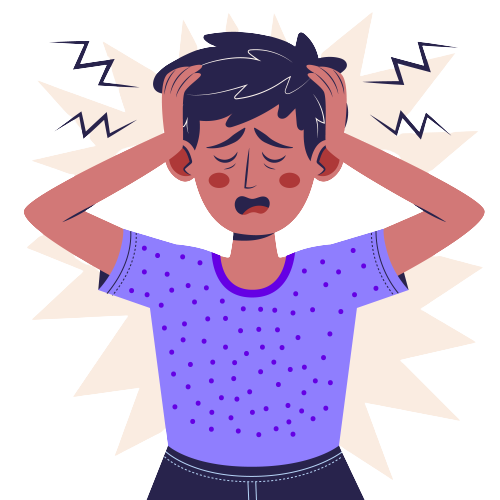Panic Attacks

What is Panic Attacks?
Panic attack is the name given to a group of symptoms that occur when a person is experiencing extreme anxiety. People who suffer from an anxiety disorder known as panic disorder have regular and recurring panic attacks often for no apparent reason.
If you are having a panic attack you may experience psychological symptoms including an overwhelming sense of fear, apprehension and anxiety.
You might also experience physical symptoms such as:
• Nausea
• Trembling
• Sweating
• Sensation that your heart is beating irregularly (palpitations)
• Hot flushes
• Shortness of breath/choking sensation
• Chest pain
• Numbness or pins and needles
• Feeling of dread or fear of dying
• Tingling sensation in your fingers
• Terror
During a panic attack some people experience ‘depersonalisation’, which is where you feel totally detached from the situation, your body and your surroundings. Sometimes the symptoms of a panic attack can be so intense that you might feel like you are having a heart attack. Because the physical symptoms of a panic attack can be so unpleasant, people who are prone to experiencing panic attacks become very scared in anticipation of the next attack, which creates a vicious cycle of anticipatory anxiety and further adds to the panic.
Most panic attacks last between 5 to 20 minutes. The severity and frequency of panic attacks varies between individuals. Some people might have panic attacks once or twice a month whilst others might experience them several times a week.
